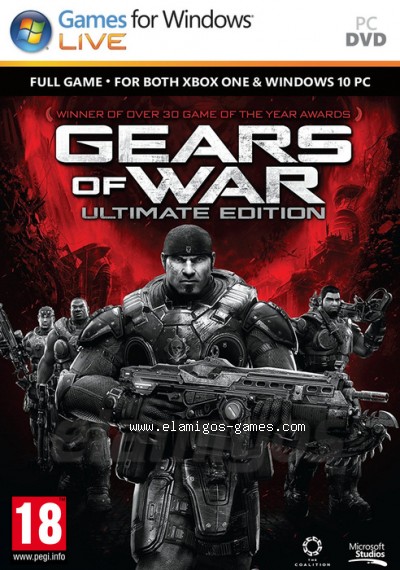

Whether shooting, running, or chainsawing enemies, Gears’ action feels heavier-more deliberate-than most modern shooters. And the unwieldy power of the characters extends to the way it feels to control their movement in combat. The squad bounds through levels like miniature elephants, the ground reverberating with the heavy steps of their metal boots as the player urges them onward to the next fight. Despite the outward familiarity of Ultimate Edition’s control scheme and visual language (there are chest-high walls everywhere), it’s a surprisingly unique game. The writing’s grim tone carries through to Gears’ still remarkable style of play, too. As insufferable as they’d be in reality, there’s no better cast of characters suited to keeping the player determined (and entertained) on a tour through a dismal, decimated post-apocalypse. The COGs are endlessly aggressive, ever hungry for another life-or-death scrape, and their attitude contrasts wonderfully against the backdrop of a world in complete ruin. And, whether intentional or not, the end result is hilarious. Gears of War’s vision of cool draws on football players, bodybuilders, wrestlers, and hard-nosed military men as its guiding principles. They bark commands to one another during firefights, spout one-liners after escaping dire situations, and mutter gravel-throated commentary as they find new weapons or kick in locked doors. Marcus and the rest of his squad are all hyper-masculine, growling, bulging muscles, and tough-guy attitudes.


Part of this is due to its aesthetic-beautiful stone collegiate buildings and European-style urban streets now crumbling after decades of war-but more comes from the way its characters are presented. The plot itself is fluff-a series of pretexts meant to provide context for new combat scenarios-but, despite this, Gears’ has a definite, memorable tone. Gears of War’s story, such as it is, follows Marcus Fenix and a group of Coalition of Ordered Governments (COG) soldiers in their attempt to fight back against the army of scaly Locust monsters who have devastated and occupied their country. Luckily, stepping away from the baggage that accompanies one of the most popular and influential titles in videogames reveals an experience that is just as compelling now as it was when it first arrived in 2006. But, with the release of The Coalition’s Gears of War: Ultimate Edition remaster, the player is asked to do just that. Trying to separate its impact on the medium from its successes as an individual game is difficult. How do you talk about Gears of War in 2016? In the decade that’s passed since the original Xbox 360 release, action games have been immeasurably influenced by Epic Games’ post-apocalyptic shooter.


 0 kommentar(er)
0 kommentar(er)
